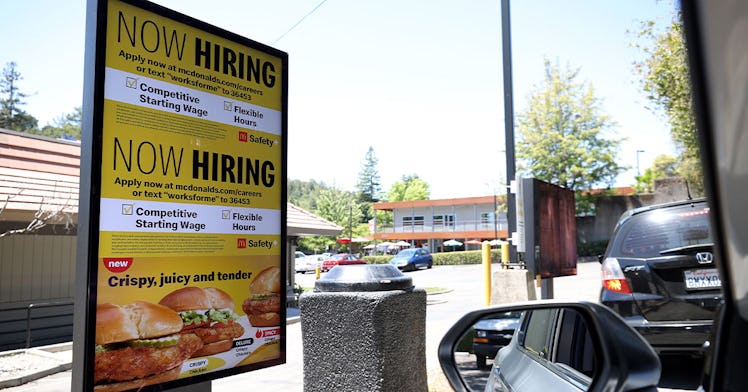Early Evidence Suggests GOP Governors Hurt Unemployed Workers for Nothing
They "may end up doing more bad on the personal income ledger than good on the employment ledger of the economy."

In an act of political posturing against the Biden administration, 26 GOP governors acceded to the wishes of business interests in their states and opted out of the additional federal unemployment benefits instituted during the pandemic. Their reasoning was that the benefits were too generous and made unemployed workers content to remain out of the workforce, slowing down the economic recovery by keeping unemployment artificially high.
The early evidence suggests that they were wrong, as the data at the time suggested they would be.
Reuters reports that recently released state-level jobs data show that job growth in the 26 states that opted out of expanded federal unemployment benefits was roughly the same as that in those whose unemployed residents continued to receive the additional aid. So these governors denied unemployed workers struggling with a devastating pandemic an extra $300 a week for nothing.
Many of the governors, in announcing their decisions, cited one or more of a series of semi-viral local news stories sympathetic to businesses, often restaurants, that claimed they couldn’t find enough workers. Unmentioned was that the relatively few businesses that raised wages and improved working conditions quickly had no problem finding enough workers—likely because acknowledging the importance and effectiveness of the government simply giving money to people in need is anathema to the Republican Party line.
Unemployed workers are the victims of this decision. UMass Amherst economist Arindrajit Dube summed up the data neatly.
“Overall, the mid-June expirations of pandemic UI seem to have sharply reduced the share of population receiving any unemployment benefits. But this doesn’t seem to have translated into most of these individuals having jobs in the first 2-3 weeks following expiration. However, there is evidence that the reduced UI benefits increased self-reported hardship in paying for regular expenses.”
Gregory Daco, the chief US economist at Oxford Economics, concurred.
“[B]enefits discontinuation may end up doing more bad on the personal income ledger than good on the employment ledger of the economy, ” he said.
In other words, opting out of the benefits took money away from workers and made their lives materially harder, but it has not led to the increase in employment the Republican governors promised. It’s possible that the next set of numbers isn’t quite as dismal, but many economists aren’t optimistic. Those at Bank of America wrote last week that “more generous benefits did not have a strong negative impact on employment … Labor constraints could persist beyond the fall.”
Looking further ahead, the expanded unemployment benefits are scheduled to expire for the rest of the country
The expanded unemployment benefits are scheduled to expire for the 24 states whose residents are still enjoying them on September 5. There have been some rumblings that the Delta variant could lead to an extension, but with national Democrats eager to put the pandemic behind them (and focused on passing President Biden’s infrastructure package), such an extension seems a remote possibility at best.
If the expiration of the benefits has the same effect as the governors’ opting out, workers will likely continue to struggle through the end of the year, particularly if a spike in COVID-19 cases comes with the winter weather as it did last year.